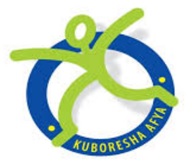OVERVIEW OF FOOD FORTIFICATION PROGRAM
 Food fortification is addition of vitamins and minerals in commonly consumed staple foods to make the food a superior source of these micronutrients. Compared to other interventions, food fortification is assumed to be more cost-effective. It is also considered a more sustainable intervention because it can reach wider populations without changes in existing consumption patterns. If fortified foods are regularly consumed in sufficient quantities, it has the advantage of maintaining steady body stores of the micronutrients.
Food fortification is addition of vitamins and minerals in commonly consumed staple foods to make the food a superior source of these micronutrients. Compared to other interventions, food fortification is assumed to be more cost-effective. It is also considered a more sustainable intervention because it can reach wider populations without changes in existing consumption patterns. If fortified foods are regularly consumed in sufficient quantities, it has the advantage of maintaining steady body stores of the micronutrients.
Kenya has made great strides in food fortification. The history of fortification in the country dates back in early 70’s with initiation of salt iodization. Salt iodization successfully became a routine process in salt processing industries henceforth. With mandatory salt iodization, a marked decline in the prevalence of goiter from 35% in 1999 to 6% in 2004 was reported.
Between 2006 and 2010, fortification standards for fortification of maize flour, wheat flours and edible fats, oils and sugar were developed. In 2012, a legislation was passed to include mandatory fortification of all packaged maize flour, wheat flours and edible fats/oils with specific vitamins and minerals. This was a Technical Regulation Number 62 of 15th June 2012 published under The Food, Drugs and Chemical Substances Act requires all packaged wheat flour, maize meal, and edible fats and oils to be fortified with vitamin and mineral.
The regulation has been revised to legal notice number 157 of 24th July 2015 states in part:
- Packaged wheat flour shall be fortified and conform to the food requirements specified
- Packaged dry Milled maize products shall be fortified and conform to the requirements specified
- Vegetable fats and oils shall be fortified with vitamin A in accordance with the Kenya Standard for edible fats and oil
- Labelling of fortified products shall be done in accordance with the relevant East Africa standards relating to nutrition
Kenya has already adopted the East Africa Standards on fortified food products in line with Kenya’s obligation to the EAC SQMT Act; Article 15(1) of the East African Community Standardization Quality assurance, Metrology and Testing (EAC SQMT) Act, 2006 provides that “Within six months of the declaration of an Draft East African Standard, the Partner States shall adopt, without deviation from the approved text of the standard, the Draft East African Standard as a national standard and withdraw any existing national standard with similar scope and purpose”.
APPLICABLE NATIONAL STANDARDS
Two sets of national standards are applicable and mandatory for flour Food Fortification and food products in general:
Products Specification Standards – This provides the quality and safety requirements that any food product must comply with.
In the case of mandatory Food Fortification three standards are relevant:
- Specification for Maize flour – KS EAS 767
- Specification for wheat flour – KS EAS 768
- Specification for edible fats & oils – KS EAS 769
Labeling standards – This provides the minimum requirements that each of the packaging containing a food product must have.
Two primary standards are applicable for prepackaged foods:
- Labeling of prepackaged foods – KS EAS 38 and
- Guidelines for health and nutrition claim – KS CAC/GL 23
Over the last decade, the number of registered food industries complying with mandatory fortification has steadily increased. Development partners have played a key role in making food fortification a success in Kenya. This includes; Global Alliance for Improved Nutrition (GAIN), Nutrition International, United Nations Children’s Fund (UNICEF), European Union through Jomo Kenyatta University of Agriculture & Technology (JKUAT), TechnoServe, and World Food Program (WFP).
Despite the notable progress made in food fortification, there are still challenges with compliance to fortification standards by food industries and implementation of legislation requiring mandatory fortification of all packaged maize flour. To maintain the gains and guide the improvement of food fortification program, the Ministry of Health has developed the Kenya National Food Fortification Strategic Plan (2018-2022). This strategic plan is intended to provide the national road map to enhance food fortification in the next five 5 years and provide long-term solutions to address bottlenecks.
Downloads:
